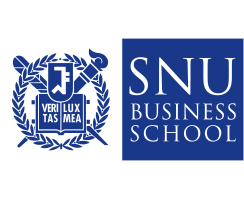SNUbiz News
Opening a New Chapter in Life: A Meeting with Professor Sunyoung Oh

1. Please introduce yourself.
I enrolled at the College of Business Administrations in 1983 and majored in financial management in graduate school. I passed the CPA exam during my first year of graduate school and worked part-time at Samil PwC during my vacations. I began to work full-time in February 1990 after graduating and completing my military service as an officer. Including one year and eight months in the PwC New York Office since 1992, I worked for Samil PwC for 31 years, mainly in international trade, including auditing and anti-dumping advisory work. I have audited LG Corp., the holding company of the LG Group, LG Chem, LG H&H, multinational corporations, and major listed companies in Korea, including Celltrion. Later in my career at the accounting firm, I worked in the department in charge of independence issues, where I interpreted the issues and regulations related to the independence of the firm’s employees and clients, provided internal training, and checked for any violations.
2. In your opinion, what are the benefits of being an accountant?
The benefit of being a certified public accountant in the job market is that you can join accounting firms. Accounting firms may have a heavier workload than other companies, but they allow you to experience many different industries, so you gain a strong advantage when leaving the accounting firm and joining financial institutions or other corporations. You also have the option of opening your own accounting office.
3. What are the roles of auditors?
Auditors review whether a company’s financial statements comply with the accounting standards. Companies have internal stakeholders, shareholders and various external users of financial information, including financial institutions, supervisory institutions, and tax authorities. Companies tend to find more favorable standards to make their financial statements look good to such users. If a company conceals or exaggerates any information during this process, it is the auditor’s role to advise the company on whether the financial statements comply with the business accounting standards. This also sends as a message to the users of financial information, that the financial statements have been audited, so at the very least, the auditor has checked them for any significant misstatements. In other words, the auditor’s role is to audit whether a company’s financial statements adhere to accounting standards and to provide an audit opinion.
4. How has your life been at the company and as a professor?
It would have been impossible for me to work alone for 31 years. I could not have done it without my wonderful coworkers. These 31 years flew by as I strived to learn from my seniors and set a good example for my juniors.
Being a professor is great because it allows me to easily transfer the accounting knowledge that I accumulated throughout my career to students by sharing my experience. Many things have happened in three decades at the accounting firm, and although I may not have experienced it all, I heard and learned many things as I worked there. Based on these experiences, I am focusing more on what the recent issues and news on accounting represent rather than relying on textbooks.
When I gave lectures on independence and vocational ethics at the accounting firm, I remember having lively Q&A sessions because I had to answer the questions posed by the executives and the staff. However, during lectures, I rarely get questions from students, especially undergraduates. So, I am hoping for more interactions with students in the future.
5. Do you have any advice for SNU Business School students?
First and foremost, it is essential to consider what you want to do for your career and prepare for it as a student. However, thinking about how you will live in the world is as important. At a short glance, job searching and getting certified might be your priorities, but rather than focusing entirely on such things, I hope that you have other experiences at a young age. It is great to be interested in various fields, and I also recommend trying what you like and having hobbies. You can discover your future path only when you try something you are interested in and experience many things.
Next, setting deadlines for job search and certifications is crucial rather than just continuing until you meet your goal. Let's say that you start preparing now and focus on reaching your goal in three years. It is great if you succeed, but if you have failed, it can be better to consider alternative paths rather than repeatedly trying after several failures. Experience many things in search of your area of interest and spend time preparing to move in your desired direction.



